In moderation, gaming can be beneficial. It can help improve and expand the teen’s IQ. However, too many teenagers are now compulsively playing video games as if their lives depend on it.
In doesn’t!
This has led to gaming addiction, which is a major concern for parents and society at large.
The World Health Organization noted that gaming disorder is a mental health condition. Gaming addiction or disorder occurs when teens compulsorily play video games for long hours — until it begins to impair in family, social, personal, educational, and other vital areas of life.
We need to establish the fact that playing video games can offer some amazing benefits.
Gaming addiction occurs when teens prioritize gaming over every other thing including their personal and educational lives — leading to unhealthy gaming behavior and dependency.
Such teens may not see the negative consequences of their addiction. Some will suffer withdrawal effects when they attempt to stop gaming.
In most cases, teens will skip school or classes, neglect sports or outdoor activities, avoid social engagements, and not do their house chores.
According to The American Psychiatric Association (APA), gaming addiction can’t be classified as a mental health problem due to insufficient facts — but there are ongoing studies by medical professionals and scientists to determine the connection between the two.
Video Gaming Addiction: Why Are Teens Addicted?
The huge demand for video games has resulted in a multibillion-dollar market. The market size is expected to reach $90 billion U.S. Dollars by 2020. It’s reached 137.9 billion U.S. dollars in 2018.
In 2016, there were more than 2.5 billion gamers in the world, according to the European Mobile Game Market.

In addition to these statistics, video gaming has become a profitable business model. I know gamers who make millions from the comfort of their homes. And these are teenagers.
Game manufacturers and developers are smart. When you see your teen addicted to video games, it’s not entirely their fault. Why?
It’s because game developers are deliberate about the games they launch. They make sure that these games are designed to be exciting, interactive, all-inclusive, and addictive.
They achieve these by creating challenging games that hold the player’s attention from start to finish. Funny enough, most video games have no end — even those that have end takes years to master.
Although video games can be challenging, they’re equally enticing. So it’s almost impossible for gamers to give up.
Developers make gamers believe that success is just around the corner — so they keep playing — resulting in video game addiction or online gaming addiction.
Video Game Addiction Vs. Avid Gamer
To a large degree, it’s often difficult to distinguish between a teen who’s an avid gamer from someone who’s addicted to it. If that’s the case, you should look out for some signs such as irritability, especially when a teen is not able to win a favorite game.
Other symptoms may include spending up to 12 hours on a particular game and not even realizing it, signs of isolation, stress, and so on.
Gaming addiction also impedes academic performance and relationships, including severe migraines and tiredness.

The reason for gaming addiction is because the brain is wired to get a reward for a job well done. So the brain’s reward system is triggered so that a teen compulsively strives to get the reward of ‘winning’ or reaching a ‘milestone’.
In a study conducted by California State University, it was clear that video games can produce similar effects on teens’ brains as substance abuse or alcoholism.
The amygdala-striatal system, which is the smaller part of the human brain wasn’t so pronounced but more sensitive in gamers who spend hours playing games.
The Massive Multiplayer Online Role-Playing Games (MMORPGs) gets the players engrossed and immersed in real-time — causing an unending loop due to the seemingly endless possibility of uncovering new terrains and levels in a game.
To complete each gaming level to get the reward, a gamer may spend extra hours trying to scale through.
Some gamers invest up to 40 hours per week on World of Warcraft. This is more than the time spent working a day job. Cam Adair was addicted to this video game for 10 years and he shares his experiences in this video.
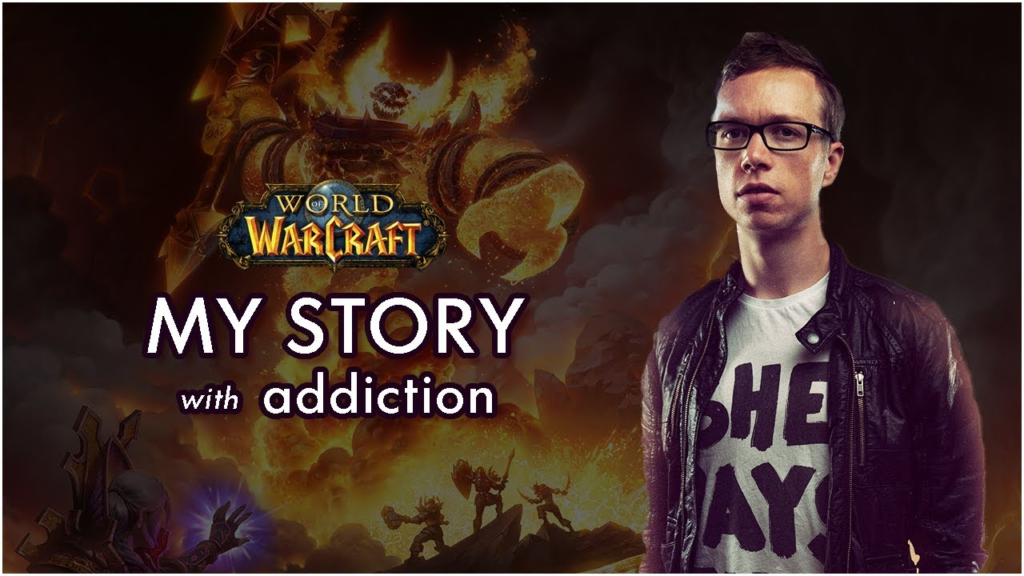
The social elements in most video games make it even more addictive because there’s a lot of people watching and making comments. This makes it hard to quit.
Gamers want to be in charge, feel connected with others, get the reward (at least in their brain), and feel competent. For gamers who make money (well, that’s another reward).
There are gamers with massive followings on YouTube, Twitter, and Instagram. How do you think the clan (i.e., gaming community) would feel if their mentor or role model didn’t show up in hours?
Did you see why gaming addiction is becoming a culture, even though it’s harmful and could lead to other negative vices?
Teens are addicted to video games and other games because they feel that quitting the game prematurely would render their efforts useless. They want to achieve that goal and be the best gamer in the world. This is a great title that most teens would love to be known.
Do Addicted Teens Want Help?
Parents may be worried that their kid is in a deep hole, but do you think these kids care as much as their parents? Surprisingly, most of them don’t.
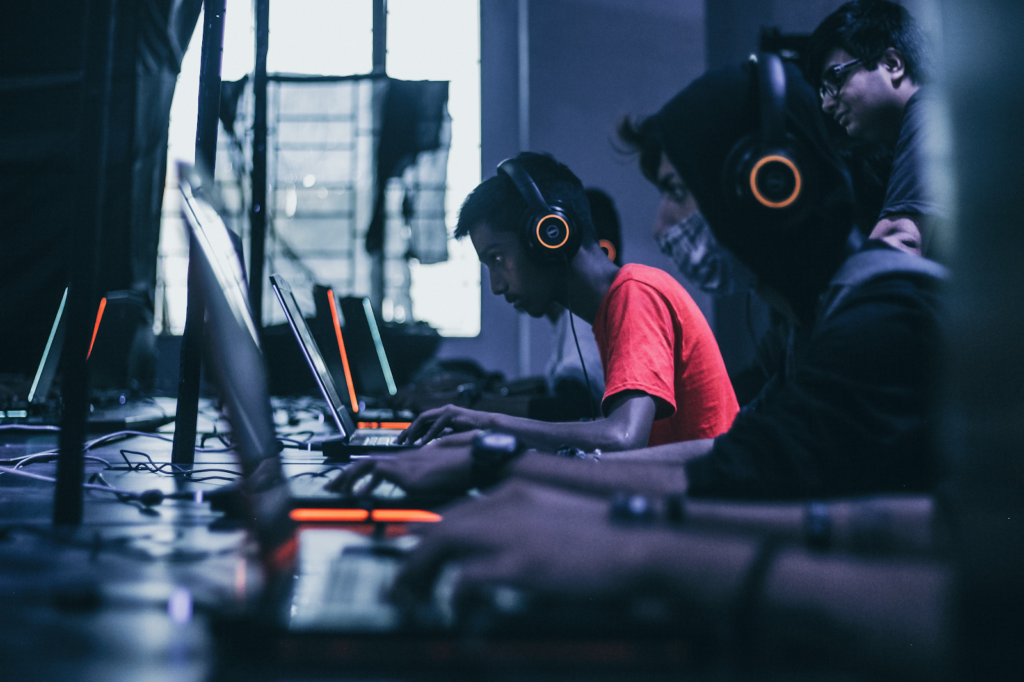
In an interview with a teen who’s addicted to gaming, it’s discovered that he doesn’t even want to be free from gaming addiction.
In Derek’s words:
“It’s my mom who has a problem, not me.”
Gaming-obsessed teenagers often live in denial, as do teens suffering from substance abuse. It’s also one of the signs and symptoms you should look out for.
You’ll often notice that some kids think that everything is fine. They don’t care if their world is crashing down like the Titanic. Derek’s mom, Melanie thinks that his son is ruining is life. But the guy thinks otherwise.
In a Brain Imaging study, it was discovered that gaming addiction is capable is hijacking a teen’s mind and giving them a different mindset.
This can cause teens to be fully-engrossed in digital devices, neglect everything about their personal goals and relationships, and yet not realize they’ve problems that need an urgent solution.
Effects of Video Game Addiction
Video game addiction is real and can affect a teen’s behavior. 1 in 10 teenagers who play video games are addicted.

Video game addiction can yield several negative effects. These can be short or long-term effects — but they must be addressed quickly and deliver the kid from depression, anxiety, stress, mental disorders, and so on.
Like any other compulsive disorder, video game addiction can have severe negative consequences. Though most of the symptoms listed above have short-term effects, they can lead to more severe long-term repercussions if not addressed properly.
Let’s consider some of the effects of video game addiction in teens:
1). Physical issues
For gamers, gaming accessories and peripherals such as controller and mouse are mostly used. But there are consequences to overusing them — such as backaches, dry eyes, headaches, ankle pains, etc.
The different game genres will have different effects on the brain. Action video games, for example, can have adverse effects on the brain, as documented by NPR.
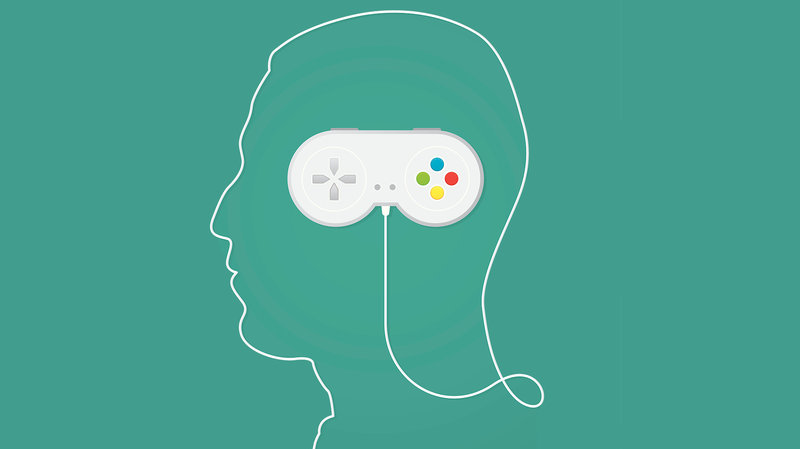
2). Reticent
The word “reticent” means quiet or restrained. Teens who play video games excessively always want to be quiet and may not have enough time to socialize with family members and friends.
This can affect a teen negatively as they’re unable to develop social skills that can only be learned in social engagements or while hanging out with friends.
Even though online games are mostly social, but it may not translate to real-world skills that come via face to face interactions.
3). Lack of confidence
When kids are used to playing games, they might think that the video world, as gigantic and scary’ as they seem, could provide a haven for them.
So when life happens to them, they tend to find escape in this imaginary world. Because their mind is blank and not prepared for the challenges of life.

These teens are therefore unable to develop the thick skin to confront their challenges and win. They miss out on an important life skill they should have developed while young.
4). Lack of zeal in meaningful activities
Most teenagers who are addicted to gaming have become less interested in other meaningful activities and hobbies that develops the mind and body.
For example, engaging in creative activities, studying with friends, learning a skill, are all worthy pursuits of life. But excessive gaming can stop the teen from learning them.
5). Skipping school or classes
I have seen firsthand how game addiction can affect a teen’s performance in school. You often find them skipping classes or develop cold feet towards learning.
They’ll feel tired of doing class assignments, which can result in bad marks at school. And the moment they start skipping school, they increase their chances of dropping out of high school and may end up with more challenges down the line, according to CRC Health.

Note: Other symptoms and effects of game addiction are irritability, extreme anger, and depression. You’ll often notice these vices in your kid if you lose closely. These are all indicators of game addiction.
How to Help Your Teen With Gaming Addiction
All hope isn’t lost for a teen who’s struggling with gaming addiction. As a parent, the first thing you have to accept is that video games aren’t so bad as most rival companies paint them — they’re not the root cause of addiction.
The major problem with video games is how teens are using them to replace important things in their lives. Essentially, compulsive gaming can replace a person’s mind with something else — which oftentimes, isn’t fulfilling or rewarding in the long run.
When it comes to addiction, we’re talking about going beyond video games as a form of entertainment. For teens, gaming can act as a coping mechanism — which isn’t a good thing.
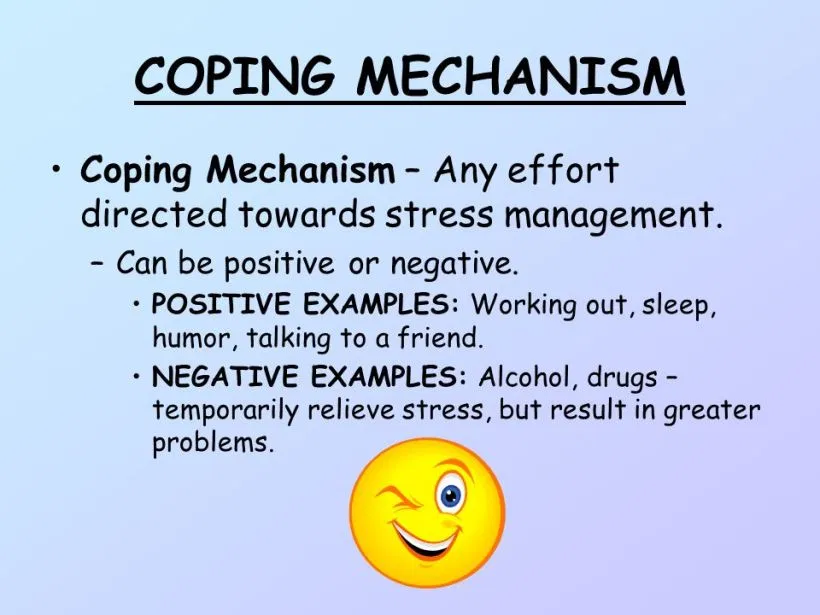
Video gaming can yield addictive behaviors in teens by replacing the worthy coping mechanisms with intolerable behaviors that affect their personal and social lives.
Both adults and teens can become addicted to anything, including eating, exercise, or even beer. It’s not the ‘element’ in question that causes the addiction but the use case.
While helping a teen deal with gaming addiction and even eliminate it, it’s important to address the signs that come as a result.
Parents have the responsibility of cutting back their teen’s gaming time by half or even more. If they used to play for 12 hours (which is the average time a teen spends playing video games), reducing it to 4 to 6 hours is a good start.
Don’t try to completely stop them from playing video games — such mode of withdrawal can aggravate the urge to play even more.
In summary, here are a few things you can do to help a teen that’s struggling with gaming addiction:
1). Effective tracking
There are immersive games on both mobile phones and online, and your kids are exposed to all of them, including the new releases. They even know the upcoming releases and are keeping a close tab on them.
One of the steps you can take is getting involved in your child’s gaming adventures. Track their game time. According to Common Sense Media, “56% of teens ages 13 to 17 play spend an average of 2.5 hours every day on video games.”
If you can allot one hour to your teen and effectively track it, you’ll improve their behavior.
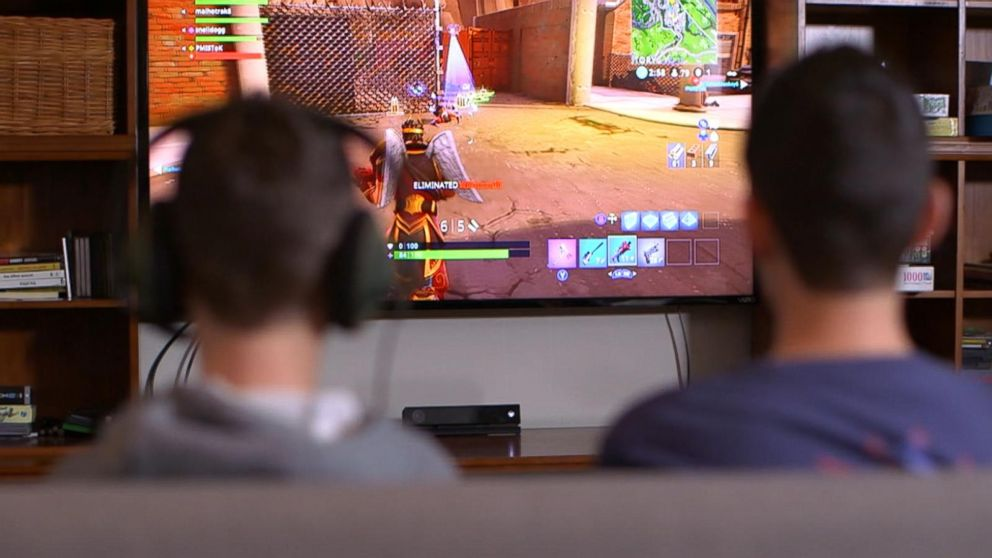
It’s easy for teens to lose track of playing immersive games especially when these games are designed to unveil a new level or dominate a level.
If you don’t track their game time, they’ll spend 3 hours on a game but think they have only spent 1 hour. If you set a standard that gaming must be 1 hour or less and track it, your child will come to terms with it.
2). Educate your child
You need to help your child understand that although gaming is beneficial to their mental health, it can also affect them if they don’t put it in perspective.
Or you could redirect their minds from being players to makers — so that they can learn skills for creating instead of using.

Make it clear that gaming is an aspect of entertainment but when they’re compulsively involved, it can ruin their lives.
Every success in the gaming world isn’t real, it’s only imaginary in a virtual world.
There’s another aspect of life that’s real. That’s what matters. Getting good grades, learning a skill, and building good relationships is far better than earning points in the fantasy world. With proper education at home, your teen will understand better.
3). Leverage tools to manage game time
Another thing you can do to help an addicted kid is to leverage tools such as Kitchen timer and other third-party tools.

Tools can be handy when you want to properly track their time. You can also install a timer on your teen’s computer so their computer turns off automatically after 1 hour or as specified.
You can also play video games with your kids. That way you’ll be able to track their time more efficiently. After all, you’re not addicted to gaming, so your head is intact.
Essentially, you can limit your teen from playing certain immersive games. World of Warcraft is a good example of an immersive game.
If you want your child to cut back on excessive gaming, you can install “Cold Turkey Blocker.” This program will automatically block certain games on your computer.

Final thoughts
Gaming addiction may not be as pronounced as being addicted to alcohol, but it can affect a teen in similar ways. Gaming addiction may not always be easy to treat, but it’s doable!
Every form of addiction should be treated.
Once you recognize dependency in video games and other online gaming activities in your teen, you can then take ample steps to help them.
In extreme cases of gaming addiction, you should seek help from a medical counselor/therapist or take your teen to a rehabilitation center.
